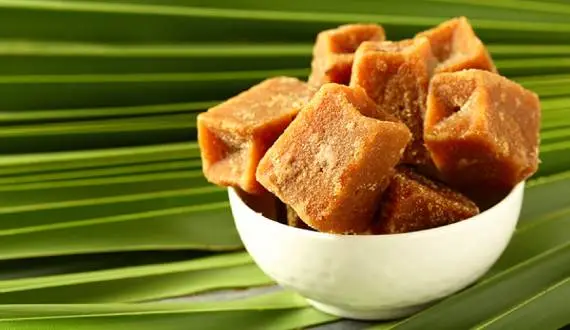Introduction
Jaggery, often referred to as "gur" in India, is a traditional sweetener made from the sap of sugarcane or date palms. Known for its rich flavor and numerous health benefits, jaggery is often hailed as a healthier alternative to refined sugar. In this blog post, we’ll explore the origins of jaggery, its various forms, culinary uses, and its nutritional benefits.
What is Jaggery?
Jaggery is an unrefined sugar that retains the natural minerals and nutrients found in sugarcane or palm sap. Unlike refined sugar, which undergoes extensive processing, jaggery is made through a simpler method, preserving its natural flavors and health benefits. The color of jaggery can vary from light brown to dark brown, depending on the type of raw materials used and the processing method.
Types of Jaggery
- Sugarcane Jaggery (Gur)
- Description:
Made from the juice of sugarcane, it is the most common form of jaggery found in India and many other countries.
- Flavor Profile:
Sweet with a hint of caramel, the flavor varies depending on the sugarcane variety.
- Date Palm Jaggery (Khalas)
- Description:
Produced from the sap of date palms, this type of jaggery is more popular in regions like the Middle East and parts of India.
- Flavor Profile:
Has a distinct taste with earthy undertones and a rich aroma.
- Palm Jaggery
- Description:
Made from the sap of various palm trees, including coconut palms. It’s commonly used in Southeast Asian cuisines.
- Flavor Profile:
Slightly different from sugarcane jaggery, it has a unique, rich flavor.
Culinary Uses of Jaggery
Jaggery is a versatile ingredient that can be used in various culinary applications:
- Sweetening:
Jaggery can replace refined sugar in beverages, desserts, and sauces. It imparts a distinct flavor and enhances the taste of dishes.
- Traditional Sweets:
In Indian cuisine, jaggery is used in many traditional sweets, such as puran poli, tilgul, and modak.
- Savory Dishes:
It is often added to curries and chutneys to balance flavors, providing a touch of sweetness.
- Baking:
Jaggery can be used in baking as a healthier alternative to sugar, imparting a unique taste to cakes, cookies, and breads.
Nutritional Benefits of Jaggery
- Rich in Nutrients:
Jaggery is packed with essential minerals like iron, magnesium, potassium, and calcium, making it more nutritious than refined sugar.
- Digestive Health:
Jaggery is known to aid digestion. It helps stimulate the digestive enzymes and can be beneficial for alleviating constipation.
- Detoxification:
Consuming jaggery helps cleanse the liver by flushing out toxins from the body.
- Energy Booster:
Jaggery provides a quick source of energy as it is rich in carbohydrates. It is often recommended for athletes or those needing an energy boost.
- Anemia Prevention:
The high iron content in jaggery makes it beneficial for individuals at risk of anemia, helping to increase hemoglobin levels in the blood.
- Immune Support:
Jaggery has antioxidant properties that can help boost immunity and combat oxidative stress.
How to Incorporate Jaggery into Your Diet
- Beverages:
Add jaggery to your tea, coffee, or milk for a natural sweetness.
- Snacks:
Use jaggery in energy bars or mix it with nuts and seeds for a healthy snack.
- Cooking:
Experiment with jaggery in savory dishes or use it to enhance the flavor of marinades and dressings.
- Desserts:
Make delicious desserts like jaggery kheer (rice pudding), jaggery halwa, or use it in baking for cookies and cakes.
How to Incorporate Jaggery into Your Diet
- Beverages:
Add jaggery to your tea, coffee, or milk for a natural sweetness.
- Snacks:
Use jaggery in energy bars or mix it with nuts and seeds for a healthy snack.
- Cooking:
Experiment with jaggery in savory dishes or use it to enhance the flavor of marinades and dressings.
- Desserts:
Make delicious desserts like jaggery kheer (rice pudding), jaggery halwa, or use it in baking for cookies and cakes.
Conclusion
Jaggery is not just a sweetener; it's a nutrient-rich ingredient that offers numerous health benefits and culinary versatility. By incorporating jaggery into your diet, you can enjoy its unique flavor while reaping the rewards of its nutritional value. As a natural alternative to refined sugar, jaggery is a step towards healthier eating habits and a more wholesome lifestyle.
Embrace the sweetness of jaggery and discover how this traditional ingredient can elevate your cooking and boost your health!


